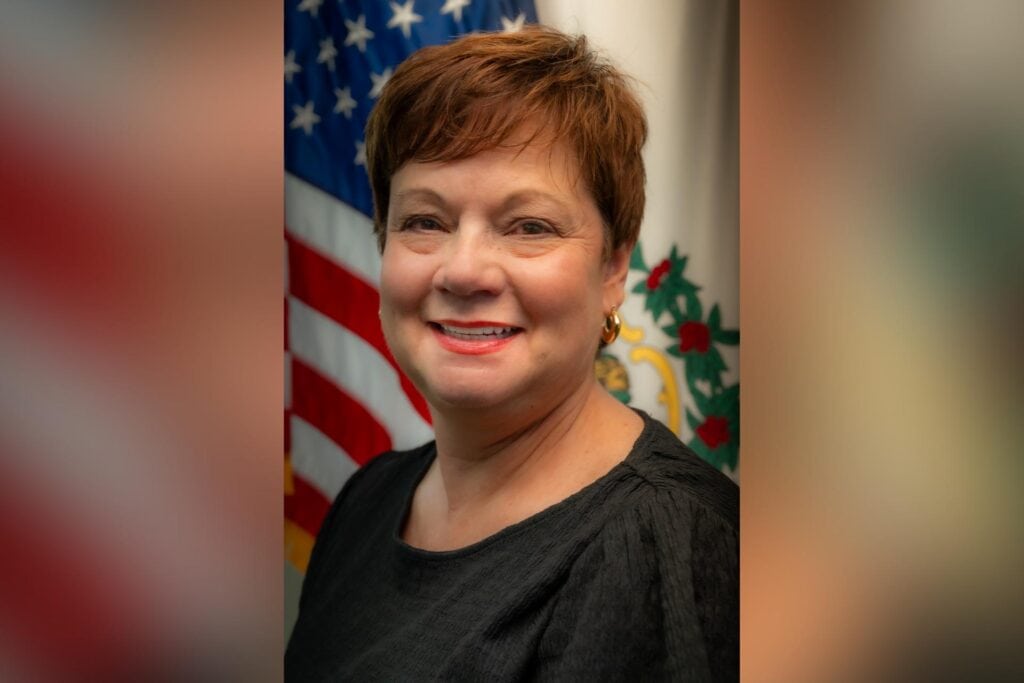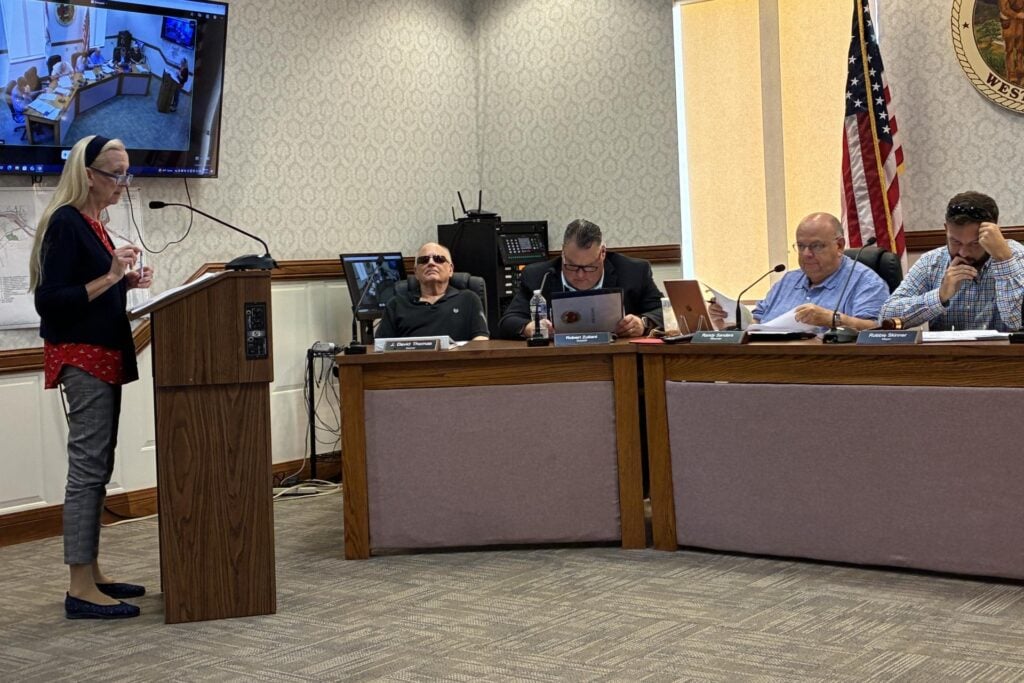MORGANTOWN – Five social fraternities which have announced their intent to dissociate from West Virginia University have been banned from the campus for at least 10 years, President Gordon Gee announced Thursday.
“As president of West Virginia University, my first priority is always our students,” Gee said in a letter to the campus community as well as parents and alumni. “I care deeply about every student on this campus. I am deeply concerned by the decision these chapters have made and can only hope that the chapter leadership has carefully considered the impact not being associated with the University will have on the chapter and its membership.”
The fraternities – Alpha Sigma Phi, Kappa Alpha Order, Phi Sigma Kappa, Sigma Chi and Theta Chi – have been unhappy with University regulations enacted over the last three years, primarily a ban on recruiting first semester freshmen.
“It is clear, and extremely unfortunate, that our students are being pressured by their national organizations to oppose deferred or delayed membership, which we believe is an important component to ensuring students have a firm academic foundation before joining fraternities,” Gee said.
“I believe these national organizations are more concerned about dollars than students’ lives,” Gee said. “As a proud member of a fraternity, I am personally saddened by the direction these organizations have taken.”
Eight fraternities remain in WVU’s Interfraternity Council: Alpha Gamma Rho, Lambda Chi Alpha, Phi Kappa Psi, Sigma Phi Epsilon, Alpha Epsilon Pi, Phi Delta Theta, Sigma Alpha Epsilon and Sigma Nu. (The 14 sororities and historically African-American fraternities and sororities are not affected.)
Gee met with representatives of the remaining IFC members Thursday afternoon to discuss their concerns and ways to improve and build upon their relationship with the University.
WVU began trying to change the fraternity culture on campus after the Nov. 14, 2014 death of Nolan Burch, a 19-year-old freshman who was a member of Kappa Sigma fraternity – which had just had its charter revoked by the national office and was not recognized by the University.
The following two years showed some improvement, however in early 2017, the University became concerned over increasing reports of sexual assaults, drug use and alcohol violations.
As a result, in February of this year the University placed an immediate moratorium on all social and recruiting activities of the then-16 social and social-professional fraternities comprising the Interfraternity Council.
In addition to the moratorium, the University raised academic standards to join a fraternity or sorority from a 2.5 grade point average to 2.75. To remain in good standing, chapter GPA averages must meet the same requirements. Likewise, all new member education activities were limited to four weeks beginning this semester. Also, freshmen are not able to join until they reach the minimum standards of membership, which is typically in the spring semester.
Over the course of the next several months, as part of a program titled Reaching the Summit, a committee of students, alumni/ae, staff, faculty and national headquarter partners reviewed each chapter’s recent academic, disciplinary and community engagement history. The group also was tasked with proposing recommendations for a strategic plan to better align each organization with the University’s mission, moving forward to the 2018-19 academic year and beyond.
As a result of the review, four fraternities were suspended: Phi Gamma Delta, Phi Sigma Kappa, Pi Kappa Alpha and Sigma Alpha Mu. The national offices of Phi Gamma Delta, Pi Kappa Alpha and Sigma Alpha Mu also withdrew recognition.
Others, including Kappa Alpha Order, Phi Delta Theta, Sigma Alpha Epsilon, Sigma Chi and Theta Chi were given various restrictions, including limits on social activities and requirements for hazing and alcohol education.
Along with their objection to deferred rush, some of the departing fraternities complained about the Reaching the Summit process and the punishments it levied.
“With the exception of one fraternity that was suspended for three years (Phi Sigma Kappa), the measures we were taking were educational development such as attending an anti-hazing program,” said Matthew Richardson director of Fraternity and Sorority Life. “They were not arduous or punitive.”
In his letter to the University community, Gee said, “It is extremely disappointing to me that we have had to go down this path. As I have said many times before, I am an ardent supporter of fraternity life. Many good things happen as a result of our fraternities and sororities: service to our communities, philanthropy dollars raised for national causes and networks that last a lifetime.
“And our fraternities and sororities that are in good standing continue to exhibit leadership and influence. I look forward to working with them to create solutions that will shape the University for years to come.”
The letters to the dissociating fraternities outlined the consequences and implications of that decision. In addition to the 10-year ban, those include:
· Continually notifying all students and parents that the chapter is not recognized by the University and strongly discourage students from joining your chapter.
· Strongly encouraging other recognized student organizations not to engage in social interactions with your chapter.
· Encouraging the Collegiate Panhellenic Association to follow the National Panhellenic Conference Unanimous Agreement (2013) which prohibits recognized Panhellenic organizations from associating with non-University recognized fraternities in an organizational capacity who do not hold University recognition due to matters of student conduct.
· Indicating on the University’s website that your chapter has “disassociated subject to ongoing conduct-related sanctions.”
· Pursuing appropriate violations of the University’s Student Conduct of Code against individual members of the chapter for recent or pending violations of the Code and University policies.
· Prohibiting the chapter from using “West Virginia University” or use any of the institution’s marks or brands in any capacity.
· Prohibiting the chapter from holding itself out as being associated or recognized by the University in any way, particularly to any potential new members.
· Prohibiting the chapter from using University resources or facilities for programming or business purposes.
· Prohibiting the chapter from participating in the Interfraternity Council or any of its sponsored programs, including: recruitment/rush; recognized new member education/intake; and educational workshops focused on risk management, recruitment, and chapter operations.
· Prohibiting the chapter from participating in programs sponsored by the Office of Fraternity & Sorority Life and/or other WVU departments, such as: Homecoming; Greek Week; being advertised for membership intake/formal communication to potential new members; and receiving grade reports and other membership data points.
· Prohibiting the chapter from participating as a fraternity in any activity sponsored by a recognized student organization for recognized student organizations, such as: social functions with IFC, NPHC, and Panhellenic organizations; utilizing resources provided by the Department of Student Engagement & Leadership; and receiving funding from the Student Government Association.
“Our commitment is to our students,” Gee said. “It is the University’s responsibility to create the best possible environment for their academic success and personal development, and we will let nothing stand in the way of doing that.
“I congratulate those fraternities which are approaching their position and roles as responsible adults,” he said.
“I am committed to changing the culture on this campus. The actions the University is taking are necessary if we are to create a culture that is healthy, vibrant and worthy of this institution. Together, we can ensure the values of West Virginia University continue to make our campus an inclusive, safe and purposeful place.”














